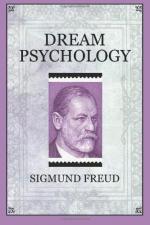We should not underrate the psychic intensities introduced into sleep by these remnants of waking life, especially those emanating from the group of the unsolved. These excitations surely continue to strive for expression during the night, and we may assume with equal certainty that the sleeping state renders impossible the usual continuation of the excitement in the foreconscious and the termination of the excitement by its becoming conscious. As far as we can normally become conscious of our mental processes, even during the night, in so far we are not asleep. I shall not venture to state what change is produced in the Forec. system by the sleeping state, but there is no doubt that the psychological character of sleep is essentially due to the change of energy in this very system, which also dominates the approach to motility, which is paralyzed during sleep. In contradistinction to this, there seems to be nothing in the psychology of the dream to warrant the assumption that sleep produces any but secondary changes in the conditions of the Unc. system. Hence, for the nocturnal excitation in the Force, there remains no other path than that followed by the wish excitements from the Unc. This excitation must seek reinforcement from the Unc., and follow the detours of the unconscious excitations. But what is the relation of the foreconscious day remnants to the dream? There is no doubt that they penetrate abundantly into the dream, that they utilize the dream content to obtrude themselves upon consciousness even during the night; indeed, they occasionally even dominate the dream content, and impel it to continue the work of the day; it is also certain that the day remnants may just as well have any other character as that of wishes; but it is highly instructive and even decisive for the theory of wish-fulfillment to see what conditions they must comply with in order to be received into the dream.
Let us pick out one of the dreams cited above as examples, e.g., the dream in which my friend Otto seems to show the symptoms of Basedow’s disease. My friend Otto’s appearance occasioned me some concern during the day, and this worry, like everything else referring to this person, affected me. I may also assume that these feelings followed me into sleep. I was probably bent on finding out what was the matter with him. In the night my worry found expression in the dream which I have reported, the content of which was not only senseless, but failed to show any wish-fulfillment. But I began to investigate for the source of this incongruous expression of the solicitude felt during the day, and analysis revealed the connection. I identified my friend Otto with a certain Baron L. and myself with a Professor R. There was only one explanation for my being impelled to select just this substitution for the day thought. I must have always been prepared in the Unc. to identify myself with Professor R., as it meant the realization of one of the immortal infantile wishes, viz.




